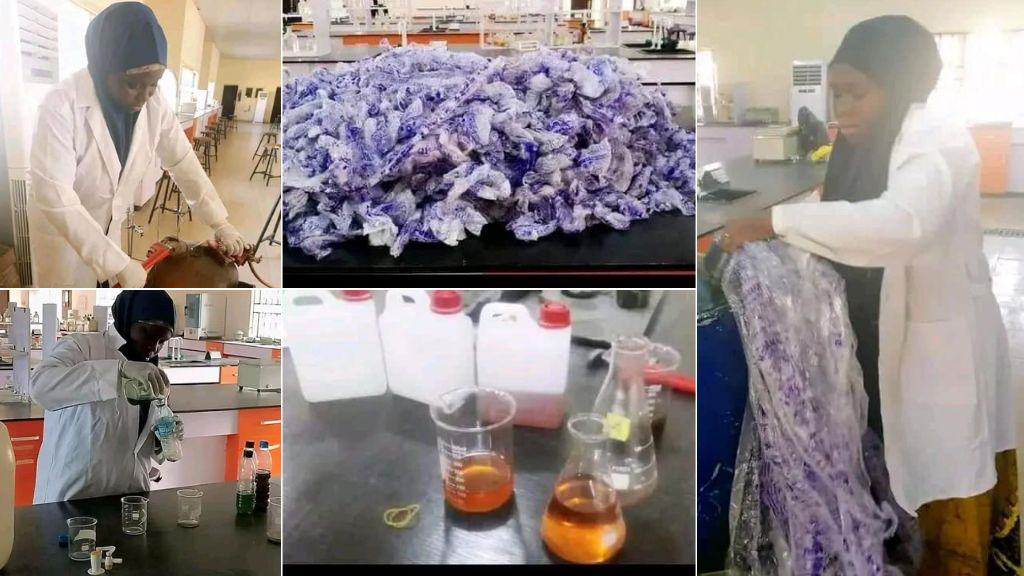Zaynab Bilyamin, a 24-year-old student at Federal University Dutse, has converted sachet water waste into kerosene and diesel.

Ms Bilyamin who is a student of the Department of Chemistry worked on the conversion as her undergraduate final year project.
Her project topic is: “Conversion of Low-Density Polyethylene and Mixed Low-Density Polyethylene with Polyethylene Terephthalate into Fuel.”
SUGGESTION: You can get News updates directly on WhatsApp by clicking “HERE” and joining our group.
Ms Bilyamin stated that she was inspired to conduct the research after reading about the possibility of converting polymeric waste into fuel because in Nigeria, polymeric waste piles up on the street without recycling, posing an environmental risk, whereas this waste can be converted to wealth.
The young scientist appreciated the support from her parents and the project supervisor, Aminu Dauda, for their help in the course of carrying out the project work.
Speaking on the challenges encountered, she said, “I carried out the experiment in the lab, although it was okay. But during the experiment, an obnoxious odour which is not very pleasant to the nose was emitted. Had it been that there was a facility a little bit away from residential areas, it would have been so much better.”
She mentioned further how she had to take her product to Bayero University Kano (BUK) in Kano State for analysis as there was no equipment for such in her school.
“Had it been available in my school, then I would have carried out the physicochemical analysis myself in my school,” she said.
In the course of the research, Mr Dauda said they had to design and fabricate a machine (reactor) at the Kano Technology Incubation Centre which was used for the pyrolysis — the method used to convert the polymeric waste into fuel..
Ms Bilyamin, who hails from Jigawa State, said she would pursue a career in academia as she want to carry the research further in her Masters and PhD program.
She added that the research gulped more than N100,000 (about $150).
Ms Bilyamin and her supervisor therefore called on the government to invest in this area of research as it will ease the blockage caused by polymeric waste and at the same time serve as a source of revenue to the government and also means of reducing youth restiveness.
